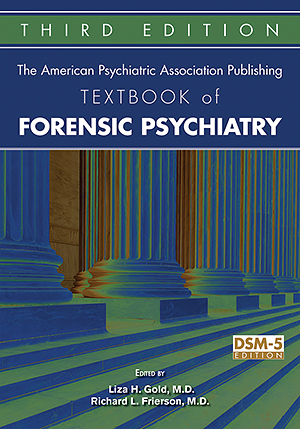Sections
Excerpt
The basic competencies of forensic psychiatry include conducting an evaluation, writing a forensic report, and testifying at trial. Each of these competencies has its own skill set, and the forensic psychiatrist must be competent in all three because poor performance at any stage will adversely affect the end product. In this chapter, I provide an overview of forensic evaluation and report writing and discuss concepts that can be applied to different types of civil and criminal forensic assessment.
Access content
To read the fulltext, please use one of the options below to sign in or purchase access.- Personal login
- Institutional Login
- Sign in via OpenAthens
- Register for access
-
Please login/register if you wish to pair your device and check access availability.
Not a subscriber?
PsychiatryOnline subscription options offer access to the DSM-5 library, books, journals, CME, and patient resources. This all-in-one virtual library provides psychiatrists and mental health professionals with key resources for diagnosis, treatment, research, and professional development.
Need more help? PsychiatryOnline Customer Service may be reached by emailing [email protected] or by calling 800-368-5777 (in the U.S.) or 703-907-7322 (outside the U.S.).



